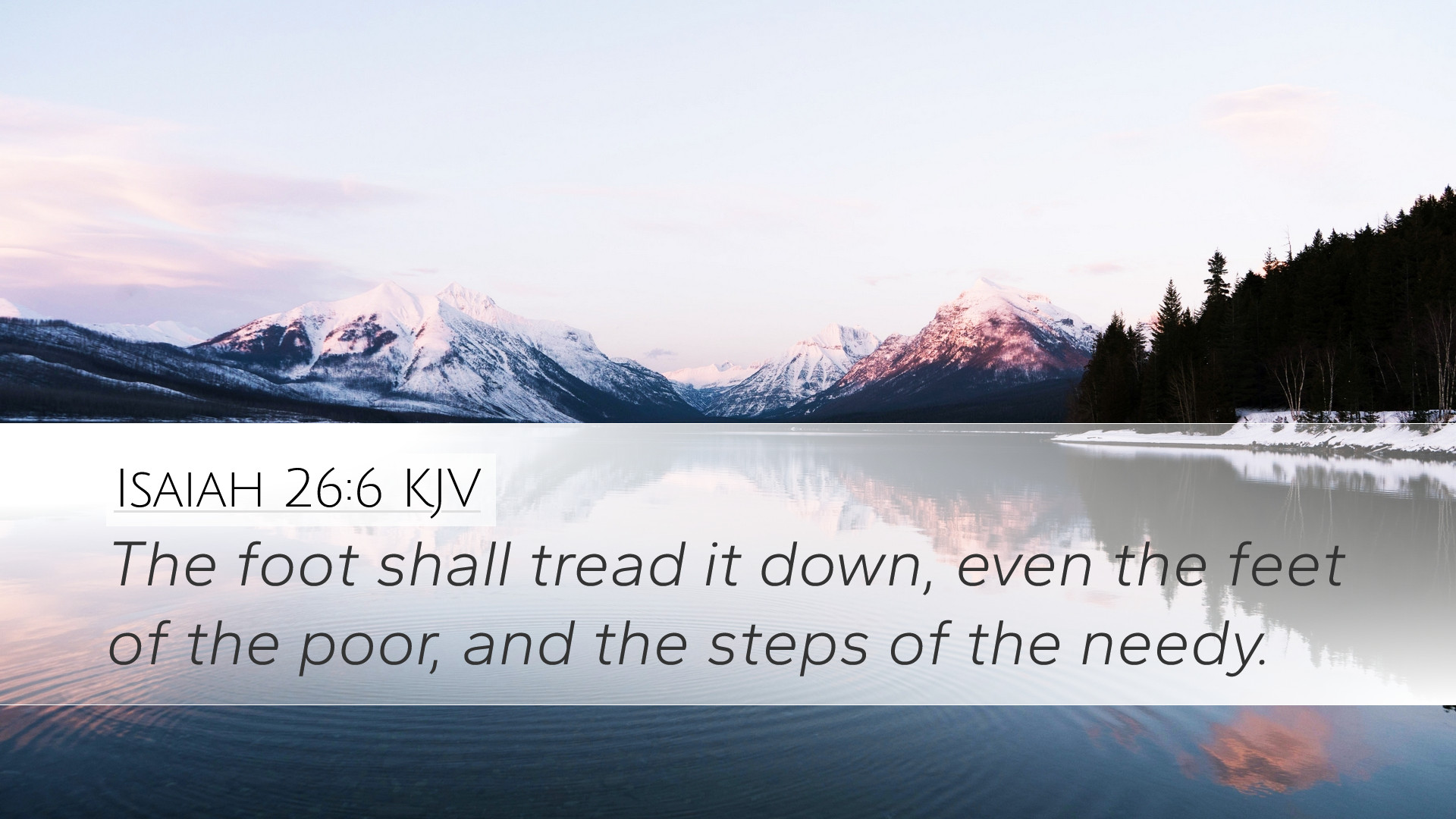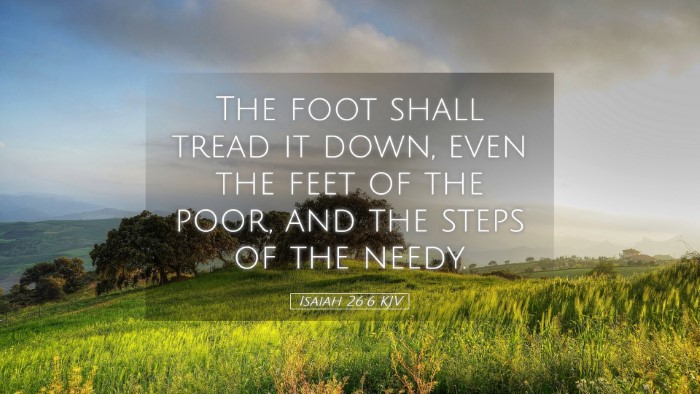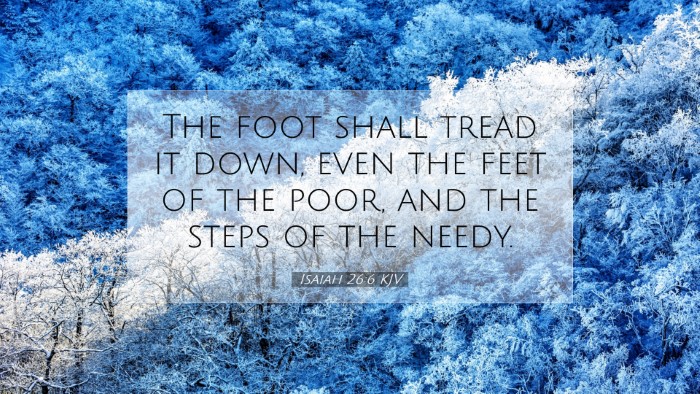Commentary on Isaiah 26:6
Bible Verse: "The foot shall tread it down, even the feet of the poor, and the steps of the needy."
Introduction
The verse Isaiah 26:6 presents a profound revelation concerning the ultimate triumph of justice and divine judgment. In this commentary, we will explore insights from renowned public domain theologians such as Matthew Henry, Albert Barnes, and Adam Clarke. Their interpretations and reflections will serve to deepen our understanding of this scripture and provide meaningful applications for pastors, students, theologians, and Bible scholars.
Context and Background
Isaiah's prophetic writings were addressed to Judah during a time of great turmoil and impending judgment. The broader context of Isaiah 26 emphasizes the contrast between the fate of the righteous and the wicked. The chapter celebrates God’s salvation, the peace bestowed on the faithful, and the ultimate downfall of prideful oppressors.
Imagery of Judgment
Henry points out that the "foot" symbolizes judgment and the path of destruction that will befall those who have oppressed the poor and needy. This imagery serves as a reminder that justice will ultimately prevail, and those who have been marginalized will find a voice through divine action.
The Foot of the Poor
Barnes elaborates on the notion that the "feet of the poor" highlights the idea that even the humble and seemingly insignificant will be empowered to tread upon the wicked. This inversion of power is a recurrent theme in scripture, underscoring God’s preferential treatment of the lowly. It reflects a divine reversal where the oppressed shall possess victory over their oppressors.
Theological Reflections
This verse encapsulates essential theological concepts, including divine justice, mercy, and the fulfillment of God’s promises. It emphasizes the notion that God's kingdom is one where the last shall be first and the first last (Matthew 20:16).
Divine Justice
Clarke notes that divine justice is inevitable and that God will vigorously defend the rights of the needy and the destitute. The mention of "the steps of the needy" not only refers to a physical state but points to a spiritual dimension where those relying on God's provision will find assurance in His justice.
Fulfillment of Prophecy
Isaiah often spoke of a future restoration, and this verse serves as a declaration of that hope. Henry comments that the poor are not merely passive recipients but active agents in the divine plan. Their involvement signifies a collective movement towards the fulfillment of prophecy, bringing about a new order ordained by God.
Practical Applications
This verse invites serious reflection for modern believers. It highlights the importance of advocating for social justice and addressing the needs of the marginalized.
Advocacy for Justice
- Pastors are encouraged to incorporate themes of justice and mercy into their preaching, actively addressing societal issues.
- Theologians might explore how this verse relates to contemporary discussions on poverty and systemic injustice.
- Students of the Bible can reflect on how they can be agents of change within their communities, standing up for those who are oppressed.
Hope for the Marginalized
In the context of today's world, this verse serves as a beacon of hope for the marginalized. It reassures them that their plight is seen by God and that they will not forever be trampled upon but will rise with dignity.
Conclusion
Isaiah 26:6 encapsulates a powerful message of justice, empowerment, and hope. Through the insights of Henry, Barnes, and Clarke, we are reminded of God's commitment to uphold the oppressed and to ensure that His justice prevails. As we reflect on this scripture, may we be inspired to live out the principles of justice and mercy in our daily lives, working towards the realization of God’s kingdom on earth.


